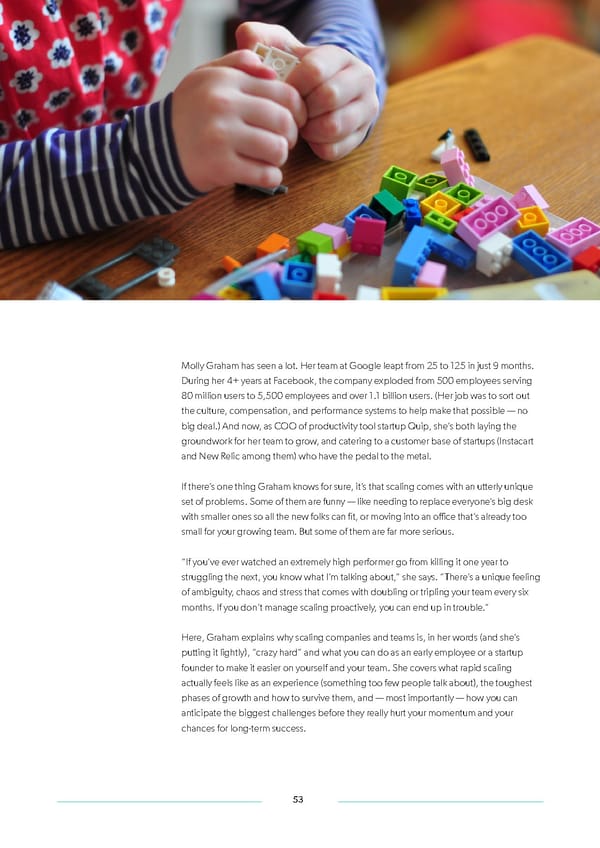ESSENTIALS MANAGEMENT Molly Graham has seen a lot. Her team at Google leapt from 25 to 125 in just 9 months. During her 4+ years at Facebook, the company exploded from 500 employees serving 80 million users to 5,500 employees and over 1.1 billion users. (Her job was to sort out the culture, compensation, and performance systems to help make that possible — no big deal.) And now, as COO of productivity tool startup Quip, she’s both laying the groundwork for her team to grow, and catering to a customer base of startups (Instacart and New Relic among them) who have the pedal to the metal. If there’s one thing Graham knows for sure, it’s that scaling comes with an utterly unique set of problems. Some of them are funny — like needing to replace everyone’s big desk with smaller ones so all the new folks can ift, or moving into an oiffce that’s already too small for your growing team. But some of them are far more serious. “If you’ve ever watched an extremely high performer go from killing it one year to struggling the next, you know what I’m talking about,” she says. “There’s a unique feeling of ambiguity, chaos and stress that comes with doubling or tripling your team every six months. If you don’t manage scaling proactively, you can end up in trouble.” Here, Graham explains why scaling companies and teams is, in her words (and she’s putting it lightly), “crazy hard” and what you can do as an early employee or a startup founder to make it easier on yourself and your team. She covers what rapid scaling actually feels like as an experience (something too few people talk about), the toughest phases of growth and how to survive them, and — most importantly — how you can anticipate the biggest challenges before they really hurt your momentum and your chances for long-term success. 53
 Essentials Management First Round Capital Page 52 Page 54
Essentials Management First Round Capital Page 52 Page 54